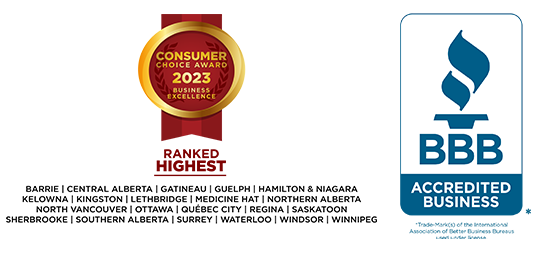Panicked About Post Holiday Debt ?
The festive holiday season has now passed – a time typically marked by overindulgence in many areas, including spending. Now that it’s over, does it mean time to get back to regular spending habits? Or does it incite panic, knowing that your credit card bills will soon be coming?
According to an Equifax report released in December, the average non-mortgage debt held by Canadians at the end of September 2014 was $20,891 – a substantial amount for just about anyone.

If, like many Canadians, you put your Christmas spending on credit, you could be amongst those struggling with a substantial amount of debt. But don’t lose hope. There are ways to deal with these bills when they come.
First and foremost, pay off high interest rate credit cards or loans. If all you’ve been able to make is the minimum monthly payment, you may want to look at a consolidation loan. This will consolidate all unsecured debt into one (typically monthly) payment with one interest rate. The consolidation loan interest rate will generally be less than the credit card rates, allowing you to pay down more of your debt and not just interest. A consolidation loan also gives you a single consolidated payment to budget for, which is far easier than budgeting for payments across say, five different credit cards. The downside though, is you may find the term of the loan too short to make the payment manageable.
If you do consolidate your holiday credit card debt into one loan payment, be sure to put your credit cards away so you don’t use them for the foreseeable future. In racking up more credit card debt you would be defeating the purpose of the consolidation loan. If you’re concerned about self-control, try putting your cards into a baggie of water and then freezing the baggie until you have paid off the loan. This will make it much more difficult to access your cards and force you to think carefully about what you’re using credit for.
Another option to tackle holiday debt is to tap into the equity in your house. A second mortgage is another type of debt consolidation. Again, if you go this route, be sure to put those credit cards away so you don’t incur more debt.
If a loan payment is not manageable for you, another option might be a debt pooling plan. Under this option, you’ll pay your existing debt under one ‘pooled’ or consolidated plan. There are debt settlement companies who will make arrangements with your creditors for payments over a longer period of time, sometimes at a lower interest rate or reduced principal. However, you must be careful of the fees some organizations may charge to administer these plans as they can eliminate any progress you’d otherwise make on paying off your debt. Plus, collection efforts by creditors may not stop.
If none of these debt relief alternatives are working for you, a Consumer Proposal may be a more effective choice. This option involves a repayment plan that is ‘proposed’ to your creditors. It is meant for consumers who can afford to pay something to their creditors, but maybe not the entire amount. One of the best benefits is the interest rate is reduced to zero. Plus, collection attempts by creditors are stopped by law. Most times, the principal is reduced as well, by up to 90% of your initial debt. The exact terms of your Consumer Proposal will depend on what your budget looks like and who your creditors are. A Licensed Trustee, such as those working at MNP Ltd., can provide you with more information about Consumer Proposals and whether they are the right solution to your holiday debt challenges.

